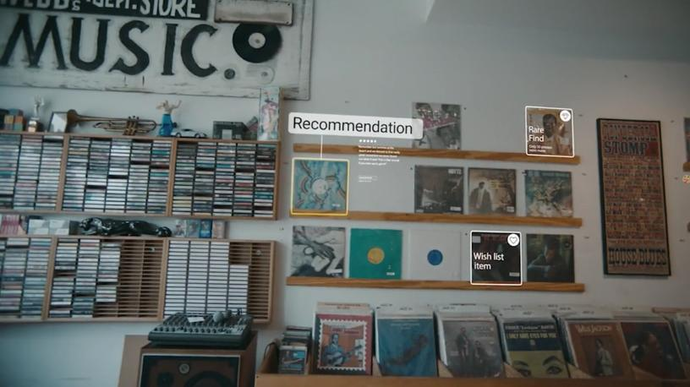Facebook has a new research project, Aria. Under the pretext of leading the way to the next generation of AR and VR wearables, it brings the problem of privacy to a whole new level, space. In a way, we can thank them. Maybe it will help to accelerate the birth of a debate about ambient privacy, which to me is as fundamental as civil rights.
Project Aria is developed by Facebook Reality Labs: there is no better mission statement for the counterfeiting of the future everyday experience. Facebook itself does not define them “glasses”, but “research devices”. The plan is to unleash a platoon of 100 contractors and employees wearing them during their everyday life in the San Francisco Bay and in Seattle.
They will try to capture new use cases and business opportunities. Record video and audio. Track eye movements to understand where interest goes naturally.
They will be recognisable by a badge and ask the owner for consent when they record in privately-owned spaces accessible to the public. Incidentally, in the process, the glasses will also capture people around, posing a threat to privacy in the public space.
“We’ve worked with in-house and external experts in privacy, civil rights and tech policy to inform things like: how we built our data pipeline for the project, how we’re protecting data collected in public, how we train participants and how we ensure they are identifiable in public.”
Although Facebook wants to give the impression that they are taking privacy seriously, their measures do not cover the principal problem: other people being recorded in the process. The fact that anyone can tell a Facebook employee to stop recording is as much placebo as cookies forced consent on websites. Most people won’t even know what Aria is, and won’t bother asking. They’ll stay there, keeping enjoying what they are doing, involuntary part of the experiment.
Why should Facebook bother to guarantee something more? There is no real agreement about what ambient privacy is and how to protect it.
“Imagine a digital assistant smart enough to detect road hazards, offer up stats during a business meeting, or even help you hear better in a noisy environment. This is a world where the device itself disappears entirely into the ebb and flow of everyday life.”
This is a world to be fought.
